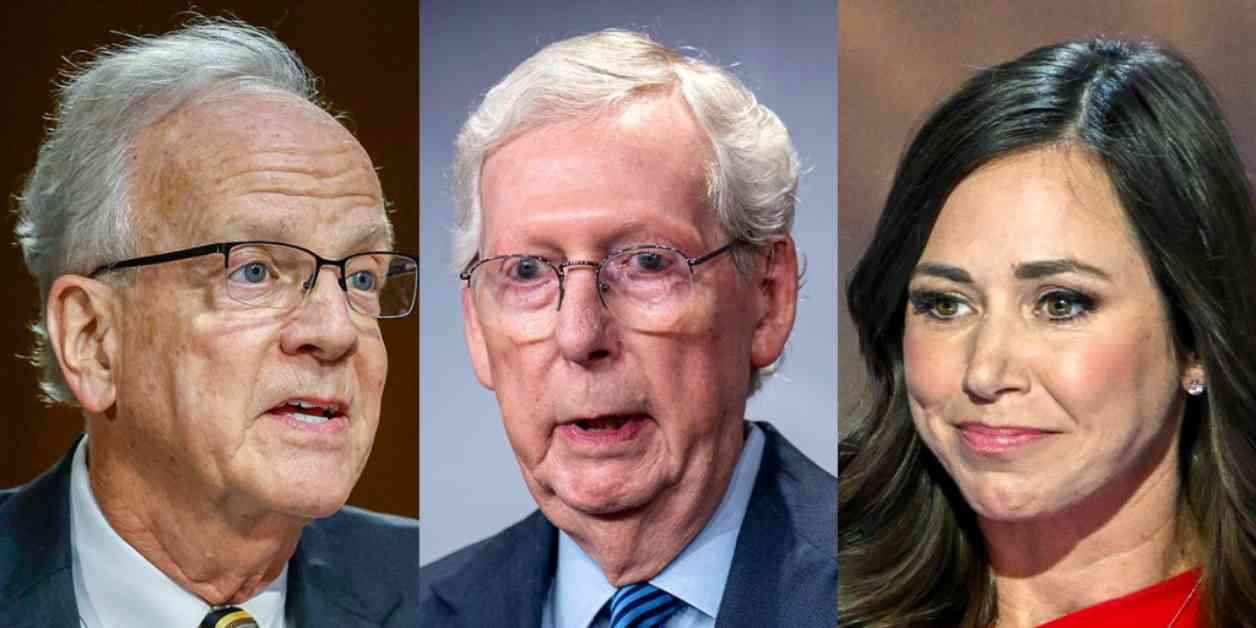Republicans in Congress are facing a dilemma as they navigate President Trump’s aggressive spending cuts and tariff policies. While initially supportive of the administration’s disruptive approach, some GOP lawmakers are expressing concerns about the potential negative impacts on their constituents. The pushback from Republicans highlights the delicate balance between supporting the President’s agenda and representing the interests of their states.
Concerns Over Health and Agriculture Funding Cuts
One of the key areas of contention is the proposed reductions in funding for the National Institutes of Health (NIH), which plays a crucial role in supporting groundbreaking research across the country. Senators from states heavily reliant on NIH funding, such as Alabama, Maine, and Louisiana, have voiced their concerns about the potential impact of these cuts on their local institutions and communities.
Senator Katie Britt of Alabama emphasized the need for a targeted approach to prevent hindering life-saving research in high-achieving institutions like those in her state. Meanwhile, Senator Susan Collins of Maine criticized the cap on indirect costs under NIH grants, warning of arbitrary cuts that could affect vital research efforts. Senator Bill Cassidy of Louisiana highlighted the potential disparities in research funding distribution, stressing the importance of ensuring that resources benefit a diverse range of states, not just a select few.
The resistance from these lawmakers underscores the broader challenge facing Republicans in Congress as they balance their support for the President’s agenda with the need to protect the interests of their constituents. The tension between promoting disruptive policies and safeguarding critical funding sources reflects a deeper struggle within the GOP over the direction of the party.
Impact of Tariffs on Agriculture and Trade
In addition to concerns about spending cuts, Republicans are also grappling with the implications of President Trump’s tariff policies on various industries, particularly agriculture and trade. Senators like Chuck Grassley of Iowa and the Kentucky duo, Mitch McConnell and Rand Paul, have raised objections to the tariffs, citing potential negative consequences for their states’ economies and consumers.
Grassley, a prominent figure in the Senate, called for exemptions on certain tariffs to protect Iowa farmers from escalating costs. McConnell and Paul echoed similar sentiments, warning of the ripple effects of tariffs on key sectors like agriculture, manufacturing, and automotive industries. The looming threat of trade wars and retaliatory measures from other countries further complicates the situation, raising doubts about the effectiveness of Trump’s tariff strategy.
As tensions rise between the President and Republican lawmakers, the GOP faces a critical test of its ability to navigate internal divisions and external challenges. The clash between supporting Trump’s agenda and safeguarding local interests underscores the complex dynamics at play in Washington, where politics and policy intersect in unpredictable ways.
In conclusion, the evolving dynamic between Republicans in Congress and the Trump administration reflects a broader struggle within the GOP over the direction of the party and the future of American governance. As lawmakers grapple with conflicting priorities and competing interests, the fate of critical funding sources, trade policies, and economic stability hangs in the balance. The coming months will test the resilience of the Republican Party and its ability to navigate a rapidly changing political landscape with skill and foresight.


